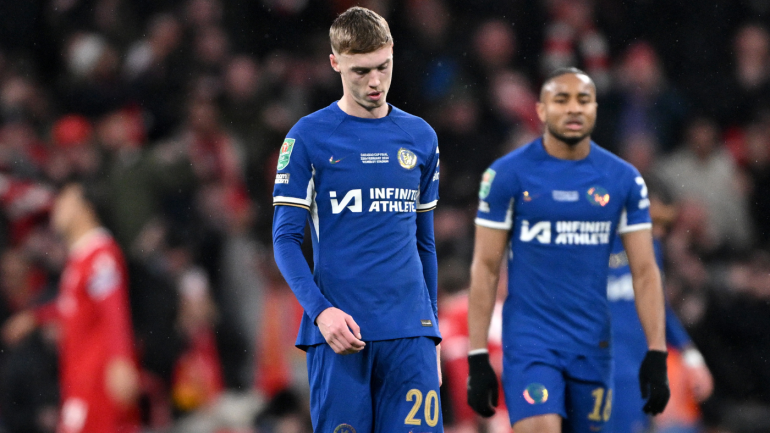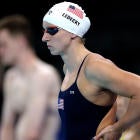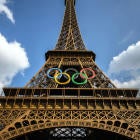
It will take a long, long time for the Chelsea players who frittered away extra time to live down Gary Neville's epithet of "blue, billion-pound bottle jobs." They will have plenty of time to rehabilitate their reputations at Stamford Bridge, whether fans like it or not. As another season without European football looms so does a simple truth for Mauricio Pochettino's squad. The players who dug them into this hole are going to have to dig them up now.
When Neville's scathing assessment of his side was put to him, Pochettino was at pains to provide a counterpoint that had perhaps been under-acknowledged amid the youthful exuberance of Liverpool's EFL Cup final celebrations. The kids from Kirby might have stunned one of Europe's most expensively assembled squads but Chelsea were hardly senior citizens.
"I think if you compare the age of the two groups, I think it is similar," said Pochettino. He has a point. The Chelsea team that started the match had an average age of just under 24, more than 12 months younger than the XI of their opponents. Even when the benches were emptied, Liverpool had veterans such as Wataru Endo and Virgil van Dijk on the field. Chelsea's side at the end of extra time was around 22.5 years old. In numbers alone, you could mount a reasonable defense for why the boys in blue froze.

Golazo Starting XI Newsletter
Get your Soccer Fix from Around the Globe
Your ultimate guide to the Beautiful Game as our experts take you beyond the pitch and around the globe with news that matters.
Thanks for signing up!
Keep an eye on your inbox.
Sorry!
There was an error processing your subscription.
What Pochettino's defense misses, however, is what might reasonably be expected of these young players. James McConnell, Bobby Clark, and the rest of Liverpool's kids had a few minutes of senior football to their names. Malo Gusto, Noni Madueke and the Chelsea team's young starters might only have a few months on them, but given their top level experience it is reasonable to expect those in blue to deliver more authoritative performances in high pressure moments (Gusto, it is fair to note, was one of the few Chelsea players who did largely deliver).
The positive case for Chelsea would go that given a few more misses in big games, these youngsters will learn from experience, molding themselves into a force seriously capable of overcoming the Virgil van Dijks of the world. Increasingly, it looks like the only scenario supporters can cling to. If this squad isn't working, there is no easy path away from it.
After all, so many of them are signed up for the remainder of the 2030s and beyond. The six, seven, eight year contracts that Todd Boehly and Behdad Eghbali sanctioned when they concreted over their first attempt at a squad rebuild are starting to take on the appearance of almighty millstones for whoever is in the Chelsea dugout.
Amortizing the cost of $75 million winger Mykhailo Mudryk over an eight and a half year contract might have been a wicked wheeze to allow the new owners to front load expenditure in 2023, but it is dramatically less effective if the player turns in performances as insipid as his display off the bench on Sunday. Chelsea might have been able to commit to a string of fees scarcely imaginable even at a club that liked a flash import before Roman Abramovich arrived, but the cost on that was a steady drip drip on the finances that will continue for much of the next decade.
Every year when sporting directors Paul Winstanley and Laurence Stewart come to assess their budget for the new season, they will have to account for another $8 million or so for Mudryk here, $15 million for Enzo Fernandez, a similar sum for the shadow of Brighton's Moises Caicedo. Their cost in year one might look favorable, will it in 2028?
Last summer there was an easy solution ahead of Chelsea, who cleared the decks of Mason Mount, Kai Havertz and a string of veterans, banking the best part of $300 million in the process. There proved to be a decent market for the constituent parts of the 2021 Champions League-winning squad. It is harder to envisage the same rush to claim the scraps of the 2024 EFL Cup runners-up, particularly when their book value at Stamford Bridge is so high that they would have to come at a premium cost.
Chelsea spent much of January indicating that they were open to taking the pure profit on their books that would come from a sale of Conor Gallagher in spite of the fact his presence in midfield gets more out of Fernandez and Caicedo. Who else might they have to part ways with? Ian Maatsen's release clause of $38 million looks like something that would drive market interest (i.e. he is underpriced based on his performances with Borussia Dortmund). Maybe Armando Broja can generate a market by impressing at Fulham, for whom he has 31 Premier League minutes since an arrival that seems to have spurred Rodrigo Muniz into his best form? Beyond that the sales get altogether less appetizing. Injury prone, but on his day exceptional, Reece James or his vice captain Ben Chilwell? Perish the thought, but the one player whose sale might really be an engine for growth is, gulp, Cole Palmer.
There are other ways to ease the cost base of the first team squad but extending the contracts of these players so you can amortise their fees further would put Chelsea at real risk of serving Barry Bonilla realness. Boosting commercial or matchday revenue would help too, both have altogether longer lag times than Pochettino can afford though.
Perhaps this season will merely go down as a learning period for these youngsters, once so highly thought of, and with enough time on their side to get back on their past trajectory. After all, there are still statistics making the pro-Chelsea case, most notably an expected goal difference good for sixth best in the division. It's not unimaginable that that sort of team, with a few unfortunate bounces and injuries to key figures, could find themselves hovering around the lower reaches of the Premier League's top half. Had those breaks gone in the other direction, perhaps they'd be battling for Champions League qualification.
What is harder to see is the path that Boehly, Eghbali and their sporting directors might have envisaged when they embarked on their expensive project youth. Certainly the error bars are still bigger for a team of early career youngsters than they are for players in their prime years, it is easier to make a case for a few collective leaps in Pochettino's squad than there is in, for instance, Erik ten Hag's. The absolute top tier of the outcome range for Chelsea, however, looks to be receding by the game. It is not so much that Sunday's defeat marked these young players out for the rest of their career as bottlers but that it served to tell the story of this group's progress in the space of 90 minutes, promising much but ultimately failing to convince anyone in the biggest moments that they had what it takes.
Can that change as the group age into their 20s? At the moment there is more reason for external observers to be skeptical than not. Within Stamford Bridge, however, it does not particularly matter. Whatever this squad is, Chelsea are locked into it for the long haul, like it or not.
















